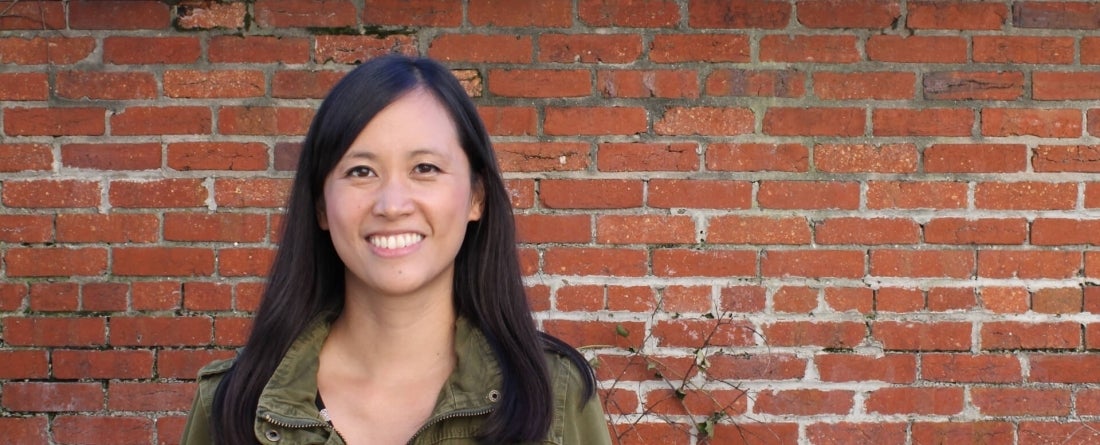
Katrina Dizon Mariategue came to the UMD School of Public Policy with a passion for advocacy and a desire to help people. She graduated in 2015 with a Master of Public Policy degree, a new career path and a job at the Southeast Asia Resource Action Center (SEARAC).
Mariategue is currently the director of national policy at SEARAC, a civil rights organization that focuses on issues that impact Southeast Asian refugee communities. “In this role, I oversee our health, education and immigration work,” Mariategue says. “I’ve been with the organization for four years and prior to this role I was leading our immigration work.”
She adds that part of her job involves routinely monitoring the policies happening on Capitol Hill and understanding how those policies would benefit or hinder Southeast Asian communities. “One area that we’re monitoring right now is around any attacks to the Affordable Care Act. There are Southeast Asian Americans who really rely on it for coverage.” she says. “We also try to push policies that make sure that communities of color and communities that have limited English proficiency have access to culturally and linguistically appropriate care.”
I feel like my master’s program coupled with the internship really uniquely positioned me to successfully interview for the position that I’m currently in.Katrina Dizon Mariategue
Another area that remains a focus for Mariategue at SEARAC is immigration. “There’s a lot of news around the administration trying to deport immigrants, so we particularly focus on trying to dismantle the prison to deportation pipeline,” she says. “Many community members who came as refugees had criminal convictions from when they were young, but served their time, and are now being subjected to mandatory detention and deportation. A lot of the work really is monitoring different policies, but then in addition just speaking out against bad policies, trying to look for policy opportunities and finding champions to introduce bills that would benefit the community.”
Mariategue says an important component of her work is around coalition building. “SEARAC is very active in the Asian American advocacy space,” she says. “We pride ourselves on making sure our advocacy is rooted in what our community partners are seeing on the ground. A large portion has to do with community engagement.”
“Every year we host an annual leadership and advocacy training, and it’s a way for us to train Southeast Asians around the country who want to learn how to do advocacy meetings and learn more about what policies are moving in DC and how they would impact their community,” she adds. “We try to teach them to utilize their own stories to push advocacy back when they go home as well.”
Before coming to SPP, Mariategue was deeply interested in immigration policy. “I was very active with a local Asian American social justice labor organization and at the time they were doing a lot of advocacy and support around the Dream Act,” she says, “I volunteered with them because it resonated with me. When I was younger, my family came here as immigrants and we were undocumented for a while, so I really saw that reflected in my family story. I wanted to help young people try to make sure that they’re protected from deportation.”
“I was debating between a law degree and a policy degree, and ultimately I realized that I didn’t want to be doing case-specific work within the immigration system, but I wanted to see some long-lasting policy change,” Mariategue says. “I felt like a degree in public policy would support longer-term changes to inequalities in our different agencies and government. That’s why I was particularly interested in the social policy specialization.”
As she pursued her master’s degree, Mariategue was able to explore topics that directly relate to the work she’s doing now. “I wasn’t only able to refine my knowledge on immigration work, but I was also exposed to other social policy areas. I took a class on education policy that was very eye opening,” she says, “I also learned a lot about health policy, and here at SEARAC those are the policies that we work on. So what I studied at my program was very much related to what I ended up doing post graduation.”
She was also able to take part in an internship during her time at SPP with the civil rights department of the American Federation of Teachers. Mariategue says that experience taught her lessons that she still uses at work today. “They had me do a study on Asian Americans in mass incarceration. When I applied to my job at SEARAC, that’s exactly their policy niche,” she says.
“Not a lot of Asian American groups work specifically on the intersection of immigration and criminal justice, and Asian American challenges are very unique and very different from other communities of color,” Mariategue adds. “I feel like my master’s program coupled with the internship really uniquely positioned me to successfully interview for the position that I’m currently in. It’s cool to see the work that I did in my master’s program being put to practical use.”
Throughout her time at SPP, Mariategue says she gained the foundational policy knowledge she needed to take her career in a new direction. And while the academic side of her education was beneficial, she also advises new policy students to stay active in the policy world outside the classroom. “Look for opportunities to volunteer outside of just the academic world so that you’re still in touch with what’s happening and what’s moving,” she says. “For me, the most helpful thing in terms of finding a job post graduation was having connections and relationships that I built when I was doing my program.”
